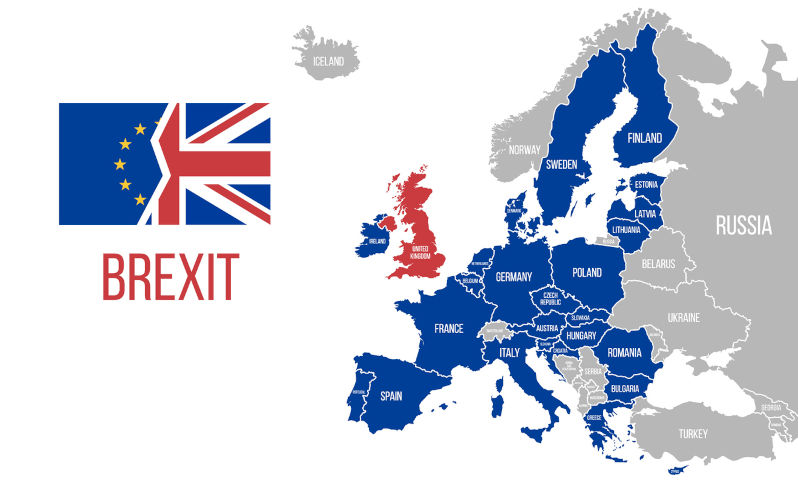Brexit over; now for common sense
March 4, 2023
The Brexit saga has played itself to death with much relief all round except perhaps at Britains political margins.
The just agreed ‘Windsor Framework’ resolving the remaining issues between the UK and the EU following Brexit provides a real opportunity to restore something of normality in the European space. A transcending factor driving this change of approach undoubtedly are the exigencies pertaining to the ongoing war in Ukraine where the need for goodwill and cooperation among European partners, not least the UK, is now an imperative for the regions security and well being.
Specifically both Britain and the EU needed to reconcile their differences so that trade between the two, particularly within and through the island of Ireland, can operate virtually seamlessly with minimum paperwork and checks in relation to borders so that the integrity of the EUs single market is not compromised in the eyes of other EU members; nor that Northern Irelands unconditional participation in the Union is not diminished; and that the good faith essential to the sustainability of the 1998 Good Friday Agreement is preserved. Moreover Stormont, the Northern Ireland Parliament, shuttered for over a year notwithstanding intervening elections - because of the Democratic Unionist Partys refusal to participate in power sharing institutions because of the Protocol - may now resume its function as the democratic forum for debate and law making as it is supposed to under the UKs framework of regional autonomy or devolution.
Moreover the aforesaid Northern Ireland Protocol has been adapted, and the threatened international legal breach in the form of the Northern Ireland Protocol Bill, has been taken off the table; and there has only been a highly conditional retention of a residual role for the European Court of Justice, for adjudicating conflict over EU regulations, with little real danger to national sovereignty. The US, which had reservations about the Northern Ireland Protocol Bill, may now be disposed to entertain trade negotiations with the UK for an FTA.
The fact that all of this has been achieved vividly illustrates, even in matters of pent up feeling, what a difference a day can make in changing circumstances. In due course, reflecting this quasi-rapprochement, there may be closer alignment between the UK and the EU over product standards generally; and more particularly over sanitary, phytosanitary and food standards, a major yet sensitive area of their mutual trade. UK participation in the Horizon Europe science program could now resume as well as cooperation over energy security. They have also expressed their intention to exploit fully the potential of the December 2020 Trade Cooperation Agreement concluded pursuant to the Withdrawal Agreement of January 2020.
Will the deeper Brexit related issues be sunk for ever or will they resurface when questions such as the unity of Ireland or a UK re-entry to the EU, arise again in other circumstances? While British attitudes towards the EU have shifted since the 2016 referendum, and with growing support for a more positive approach to joint arrangements emerging, there remains a strong feeling that the 2016 referendum should not be betrayed but a range of integrative and mutually cooperative measures should be pursued, even for entry in the Single Market.
Have the Ultra-Brexitists and the so-called European Research Group (ERG) in the British Parliament had their day and no longer hold the fate of Tory Prime Ministers in their hands as over the past seven years? Quite likely if a Conservative government is to be elected next year drawing on Prime Minister Rishi Sunaks deft handling of the latest Brexit negotiations. But that is unlikely anyway as Keir Starmer, the Labour and Opposition leader, has been able to shift Labour politics and its public face away from Brexit to the business of government and the need for honesty and integrity in its administration. This may be relative but the British people now look for competence and an end to shenanigans and dissembling on the part of its parliamentarians, particularly Tory politicians.
As a sharp observer of British politics, and of Brexit in particular, Professor Chris Grey (Emeritus, Univ of London) wrote before the settlement:
As for the ERG, they may well find that provoking a political and perhaps economic crisis over a problem the public was told had been solved, and one most of them care little about anyway, will not be at all popular. Thats all the more so given that most voters think Brexit was a mistake that has damaged the economy, and at a time of food shortages which are attributable in part to Brexit. The Brexit Ultras may even reflect that, egged on by Johnson for his own transparently self-interested reasons, they risk creating, or hastening, the implosion of the government and the Tory Party altogether.

